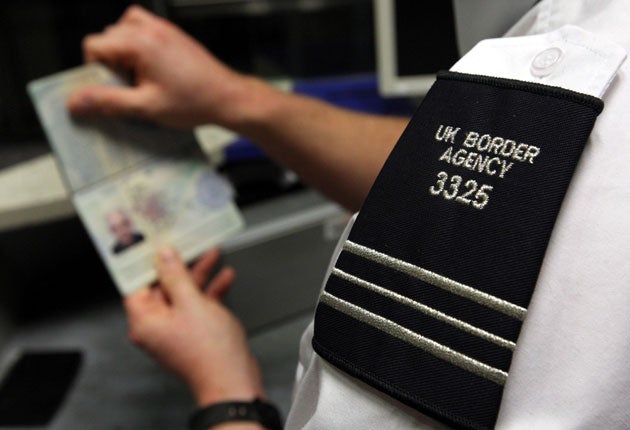The Government has serious questions to answer about its immigration target
We consider keeping the 170,000 target to not only be economically damaging but also socially divisive


In today’s world, immigration is a fact of life. Thousands of people from inside and outside the EU make a positive contribution to the UK, just as thousands of British people do all over the world. Moving abroad is not a crime and not a threat. It’s the way the world works, and most people who do it are determined to do a good job wherever they go.
EU migrants make a vital contribution to our country: they bring innovation and ideas to our economy; they pay taxes that help us invest in our public services; and they are our friends, family and neighbours. This is why we are concerned about the economic and social implications of plans to dramatically reduce migration to the tens of thousands.
The Prime Minister has confirmed that this remains government policy. Recently, however, ministers have suggested that there will not be a reduction of EU workers in major sectors of the economy, including hospitality, catering, social care, agriculture, financial services, construction, farming and universities. Combined, the EU nationals employed in the sectors that ministers have suggested will be protected make up 34 per cent of EU nationals currently working in the UK.

This, in our view, does not represent fully the numbers of EU workers that are indispensable to the UK workforce, but it does show how difficult and damaging it would be to make huge reductions in future numbers of EU migrants coming to the UK.
The tens of thousands target means annual migration will have to be reduced by more than 170,000. In light of ministers’ comments about key sectors, the bulk of this reduction will fall on non-EU migrants and EU migrants in non-protected sectors, such as energy, manufacturing, information and communication, science, or areas of the public sector.
Such a reduction focused on these sectors would deny businesses of the skills and talent they need and exposes the target as unachievable. We agree with the Government’s commitment in its recent White Paper on the UK and the EU that we must be a country “that recognises the valuable contribution migrants make to our society and welcomes those with the skills and expertise to make our nation better still”. This ambition is, however, incompatible with the tens of thousands target.
Indeed, we consider keeping the target to not only be economically damaging but also potentially socially divisive, as it is based on the premise that migrants are a negative for our country when they are in fact the opposite.
If this is to remain official government policy, however, it should be justified, so we urge the Government to answer these questions:
- When will the target be reached and will any changes to current freedom of movement rules be subject to a transitional period?
- What is the economic rationale for the target and what evidence can be provided to demonstrate it will stimulate economic growth?
- Given net migration is at present almost evenly split between EU and non-EU migration, will this continue with an aim for approximately 50,000 EU migrants and 50,000 non-EU migrants?
- In which of the now non-protected sectors of the economy will there be a significant reduction of EU migrants, and what assessment has been made of the impact?
- What assessment has been made of the impact of the target on the public sector?
- What assessment has been made of the impact on skills shortages in specific trades and sectors?
- Will the Government publish all submissions businesses and trade bodies have made regarding the impact of pursuing this target?
- What skills training measures will be put in place to directly replace lost EU labour?
- In which regions will the impact of the reduction of EU migrants be felt most acutely, and at what cost?
- What assessment has been made of the numbers that will be lost due to UK employment growth slowing, versus the numbers that will be lost as a direct consequence of changes in government migration policy?
We very much hope the Government will take the time to engage with the implications of their target and, if it is to remain as the driver of UK migration policy, answer the above questions in detail.
Anna Soubry is Conservative MP for Broxtowe; Pat McFadden is Labour MP for Wolverhampton South East; Norman Lamb is Liberal Democrat MP for North Norfolk
Click here to sign the petition to drop the migration cap
Join our commenting forum
Join thought-provoking conversations, follow other Independent readers and see their replies
Comments
Bookmark popover
Removed from bookmarks